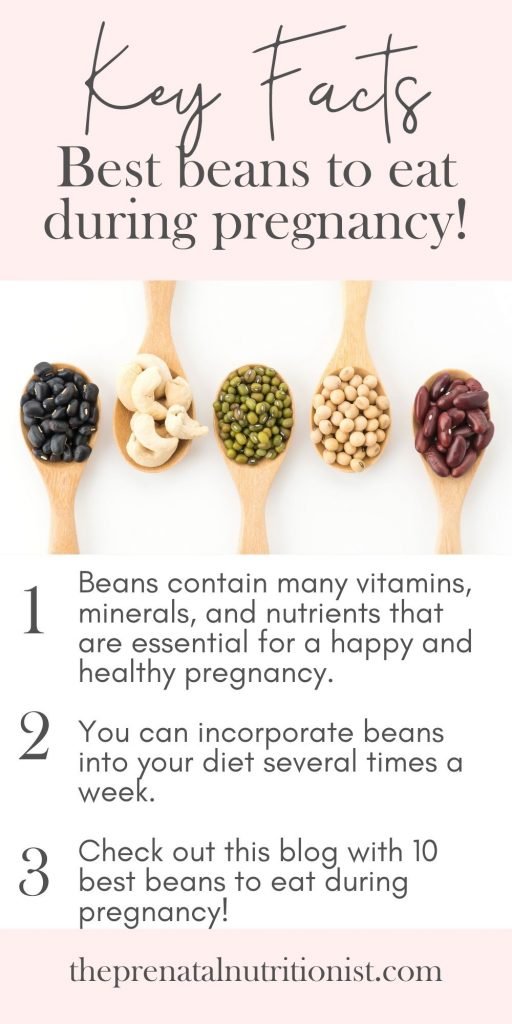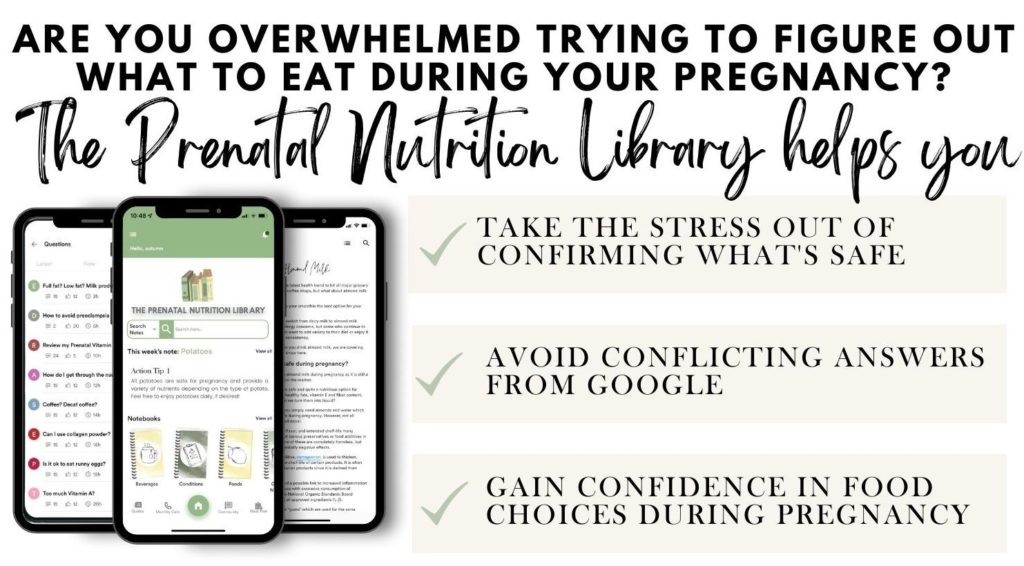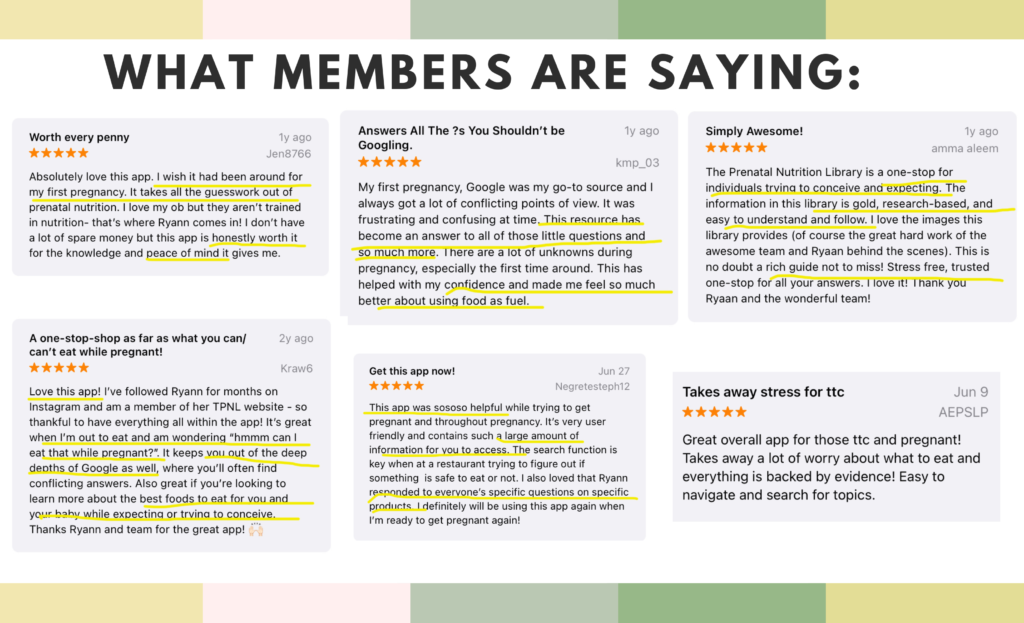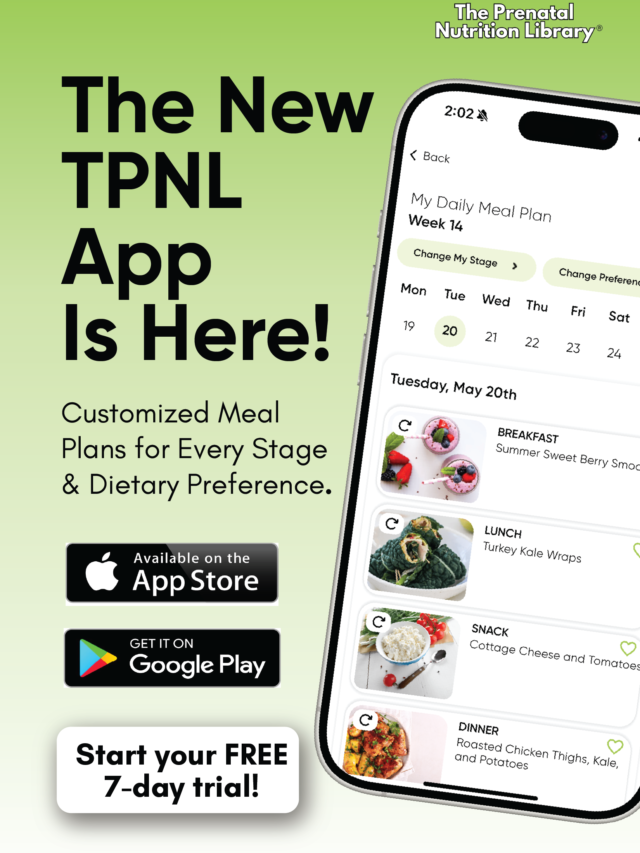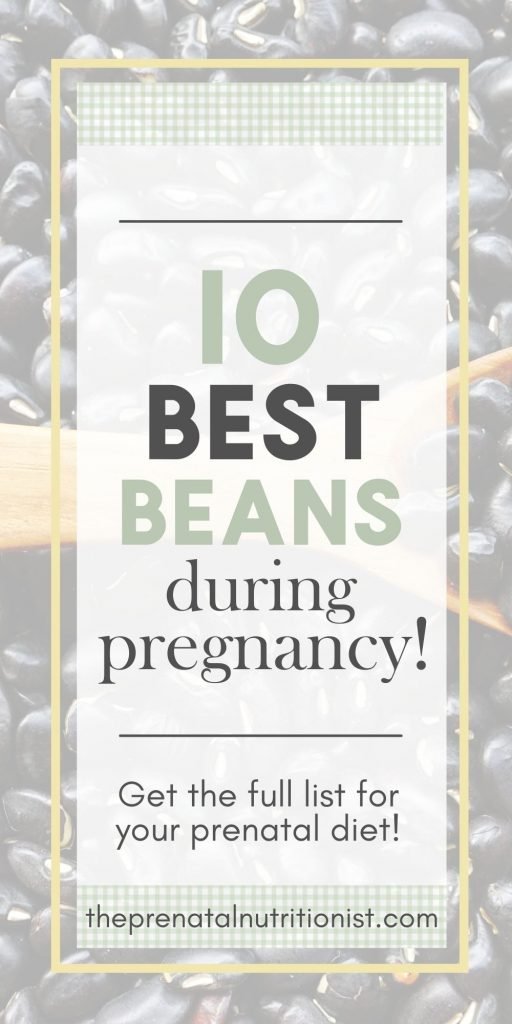
One of the most important things to learn while pregnant is nutrition for optimal baby development. Eating the right foods can help support the needs of a growing baby and ensure that you’re getting the vitamins and minerals required to support a changing body. So, today, we’re talking about a staple in many cuisines and maybe even in your pregnancy diet– beans.
Beans are among the most beneficial “superfoods” to consume during pregnancy. They contain many vitamins and minerals, are high in protein, and are rich in fiber, essential for a happy and healthy pregnancy. Plus, they’re delicious! It is okay to incorporate beans into your diet for pregnancy several times a week. Even better, every bean comes with a different nutrient profile.
When shopping, both canned and dried beans are great choices. Canned beans offer convenience—rinse to reduce excess sodium and hopefully prevent some unwanted gas—while dried beans are budget-friendly and can be cooked in large batches. Keep a variety on hand to make it easy to enjoy all their nutritional benefits.
Let’s go over the best beans to consume during pregnancy and why they should be a part of every expectant mother’s diet, if you enjoy them!
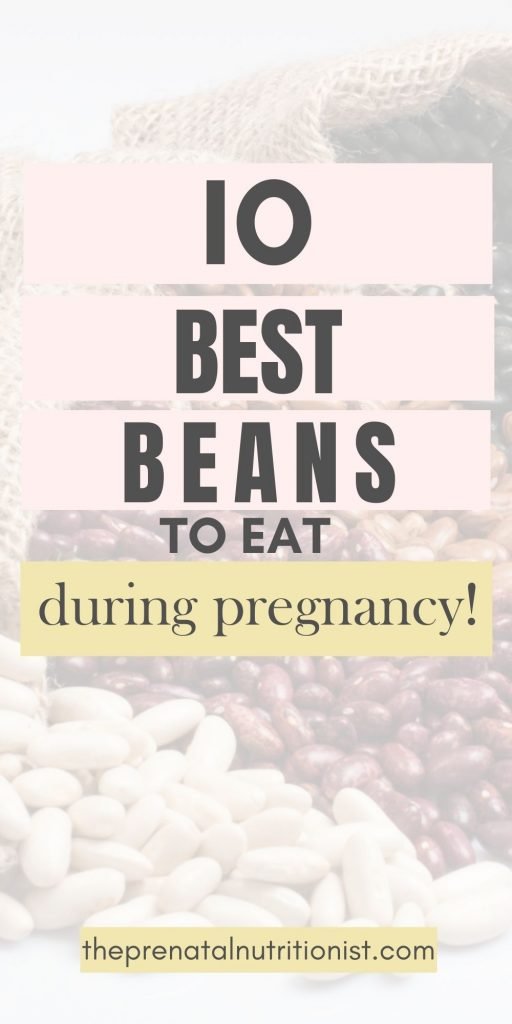
10 Best Beans For Pregnancy
Black Beans
Black beans are one of the best vegetarian sources of protein that expecting mothers can consume during pregnancy. Just one cup of cooked black beans contains over 21 grams of protein—wow! These beans are also an excellent source of iron, magnesium, and vitamin B6. Other benefits of black beans include lowering blood pressure and helping to maintain a healthy weight gain during pregnancy. They also have one of the highest soluble fiber contents of all beans, which enables you to stay regular!
Are you wondering how to add black beans to your diet? Try making a hearty black bean soup with onions and your favorite seasonings. Onions, whether cooked or raw, also contain many essential nutrients required during pregnancy.
White Beans
White beans are a rich source of iron, folate, and copper. Iron and folate are particularly important during pregnancy. They help create and distribute red blood cells throughout the body and directly contribute to the proper growth and development of the baby’s brain and eyes. White beans are also a great source of protein to keep a mother’s changing body strong. They also have a significant amount of fiber to help prevent constipation, a common pregnancy symptom.
There are many ways you can include white beans in your diet. These beans can be thrown into any soup, on top of any salad, or even pan-cooked with your favorite meat. You can even mix these beans in your next omelet for a healthy breakfast option during pregnancy.
Pinto Beans
Pinto beans, in particular, are a fantastic source of folate, a necessary nutrient required during pregnancy to help prevent serious neural tube defects. Folate also assists the body in creating new tissues and red blood cells. Pinto beans are loaded with antioxidants to help prevent the growth of free radicals in the body. They are also considered a low-glycemic food, meaning regular consumption of these beans can help prevent pesky blood sugar spikes.
Pinto beans are an excellent addition to any soup, chili, stew, dip, burrito, or taco. The options are endless when it comes to pinto beans. You can even use these beans to create a delicious and hearty bean burger. Combine your burger with some healthy sweet potato fries for a delicious and nutritious dinner any night of the week.
Lentils
So, lentils aren’t beans, but they are legumes, and beans are legumes. Lentils are rich in fiber, protein, potassium, and iron. Getting plenty of potassium during pregnancy is vital to help prevent painful muscle cramps and aches commonly affecting expectant mothers. Potassium also assists in proper blood circulation and can help reduce high blood pressure. When it comes to cooking lentils, it’s important to make sure that you don’t overcook them. Overcooking lentils can drastically reduce their nutritional content.
Lentils are the perfect warm comfort food for cold winter nights. While lentils might seem like really basic food, they are among some of the top healthy foods you can eat. You can cook them and include them in so many various dishes. They can be boiled as a soup, tossed on a salad or sandwich, used as stuffing, or baked into a healthy pregnancy dessert. The best part is that there are a plethora of different colors and types of lentils to choose from, making it super easy to mix things up.
Black-Eyed Peas
Black-eyed peas…yum! Not only can these legumes help you start your new year off on the right foot, but they can also help you achieve all your prenatal nutrition goals. They are a super-rich source of folate, vitamin A, and manganese. During pregnancy, manganese contributes to higher energy levels and higher cell turnover, both of which directly benefit mother and baby.
Black-eyed peas are an excellent choice for your next healthy pregnancy lunch idea. Not only are these guys delicious, but they are also super versatile. They can be eaten boiled with seasoning, in a casserole, in hummus, in a bean salad, in a regular salad, and in a dip. When it comes to black-eyed peas, don’t be afraid to try something new!
Kidney Beans
Kidney beans, commonly used in a dish called rajma, contain a plethora of vitamins and minerals required for a healthy pregnancy. These include protein, fiber, molybdenum, folate, iron, copper, manganese, potassium, and vitamin K1. Molybdenum is important during pregnancy to ensure the removal of toxic substances from the body. Manganese is important because it directly contributes to the baby’s bone and cartilage growth.
Like black-eyed peas, kidney beans are very versatile. You can throw kidney beans in any soup or chili, or try your hand at a vegetarian sloppy joe. These beans also go great in any taco salad, quesadilla, or burrito. You can even make refried kidney beans for a little twist on this healthy side dish.
Garbanzo Beans
Commonly known as chickpeas, garbanzo beans are a super healthy source of fiber, folate, potassium, protein, iron, magnesium, and more! Getting plenty of folate during pregnancy is essential for many reasons. These include building your baby’s brain and spinal cord, keeping your iron levels normal, and keeping your energy up. Chickpeas are a great source of naturally occurring folate, not folic acid, the synthetic form. Focusing on increasing your folate intake before and during the early stages of pregnancy is ideal. Outside of beans, one of the best sources of folate is dark green leafy vegetables like kale!
Also, did you know that homemade hummus is the safest hummus you can eat during pregnancy? It’s true! Use your garbanzo beans to try your hand at making your own hummus. You can incorporate this bean into your diet by throwing it in your next salad or roasting it in the oven to make it a crispy little bite.
Soy Beans
During pregnancy, consuming unprocessed soy, such as soybeans, tempeh, and natto, can be a great way for pregnant vegetarians to get protein. However, too much soy may not be the right protein for you, as too much can potentially cause problems, like too much of anything. Soybeans are considered a complete protein, which is another reason they are excellent for vegetarians; they are also a good source of several nutrients like calcium, iron, potassium, and B vitamins like folate. Folate and iron are key to a baby’s brain development, as are omega-3 fatty acids. Unfortunately, you don’t get those from beans, but from fish! You are strongly encouraged to take an omega-3 supplement if you do not eat fish. Use the discount code RYANN at checkout.
Tired of the same old, same old? Try your hand at some international cuisine! Incorporating soybeans into your diet is the perfect reason to whip up some curry, stir-fried rice, non-traditional hummus, or masala using these beans instead of meat. Or keep it simple and order edamame as an appetizer next time you dine out.
Green Peas
Green peas are a wonderful and easy food to add to your pregnancy diet. They contain protein, fiber, vitamins A, C, and K, beta carotene, calcium, potassium, phosphorus, manganese, magnesium, and folate – wow! Some pregnancy-specific benefits of peas include their anti-inflammatory properties and the fact that they can boost your immune system. It’s never too late to start incorporating these peas into your pregnancy diet. Plus, they are so versatile; you can incorporate them into so many dishes.
Peas are a delicious and nutritious side to any lunch or dinner entree. They pair perfectly with a variety of other foods, including pasta, onions, carrots, and dairy products like cream cheese and feta cheese. Add them to your grocery list this week and whip up a soup, throw peas on a salad, or even puree them to create a hearty dip.
Navy Beans
Have you tried Navy beans before? While you may not have navy beans in your weekly menu rotation, they are worth a shot. They have good protein, fiber, B vitamins, and minerals. Folate is actually one of their starter nutrients, like many of the other beans listed here, which, again, is a vital nutrient for pregnancy! Additionally, they are a good source of magnesium, a nutrient many pregnant women are not getting enough of. One cup of navy beans has 19 grams of fiber and 15 grams of protein. They have also been shown to help regulate blood pressure and blood sugar.
The most common way to eat navy beans is in a soup or as a regular side dish. When cooking them, be sure to add plenty of salt, pepper, and seasoning to make them taste good. If you tend to buy canned beans, be sure to check out our other blog post on canned foods during pregnancy. Definitely drain and rinse any canned beans or peas you buy before using them!
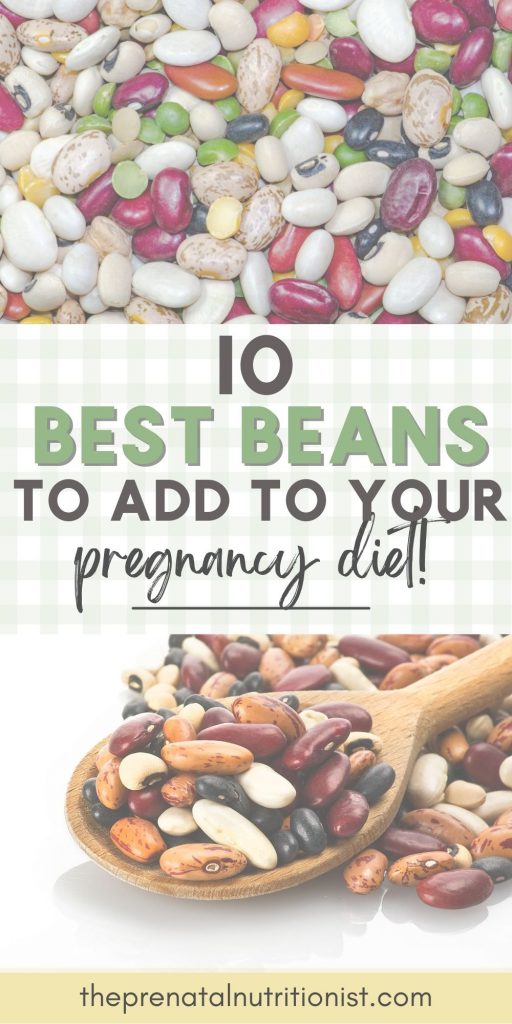
Add beans to your prenatal nutrition diet today!
As you can see, the benefits of consuming beans during pregnancy are endless. And, there are so many ways to incorporate them into your diet!
Plus, with so many healthy beans to choose from, there are an infinite number of recipes out there to choose from. If you’re looking for a trusted place to find all the answers you need on eating during pregnancy, plus easy meal plans and recipes, look no further than The Prenatal Nutrition Library App.
TPNL will tell you what is safe and not safe during pregnancy and what is optimal to give your baby the absolute best start to life. It’s a searchable database just like Google, but completely evidence-based from a pregnancy-registered dietitian. You can even download the app for free to get a sneak peek!
